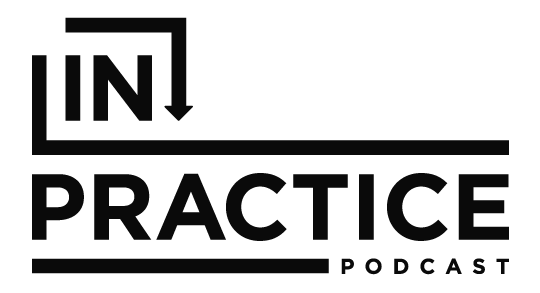S1 E2: THE GREAT UNKNOWN
Guests: Dr. Karestan Koenen, Harvard University T.H. Chan School of Public Health professor of psychiatric epidemiology – Dr. Steven Berkowitz, University of Colorado professor of psychiatry and director of the university’s Stress, Trauma, Adversity Research, and Treatment Center – Dr. Kevin McCauley, former US Naval surgeon and Meadows Senior Fellow – Deirdre Stewart, Director of Trauma Resolution Services and Neurofeedback Specialist
If the psychological impact of this pandemic has affected you physically, you’re not alone.
Today, we’ll explore the intersection of stress, mental health, and physical health. We’ll take a look back in history to find clues from the aftermath of the 1918 influenza pandemic, and we’ll look forward to see how new discoveries in neuroscience could help heal our minds and bodies in the days to come.
PODCAST TRANSCRIPT
David Condos
The field of medicine has made giant leaps in the past 100 years. For example, when the influenza pandemic spread around the globe from 1918 to 1920, there was no talk of “flattening the curve.” It didn’t really matter how many people were hospitalized because hospitals couldn’t do much to help those with influenza, at least from a medical standpoint. There were no ventilators, there were no antiviral drugs, and it would be another two decades before scientists isolated influenza strains and developed something that most of us take for granted: the flu vaccine.
Medical advancements like these helped the American life expectancy go up 25 years between 1920 and 2020. It’s the reason that, even in the middle of a devastating pandemic, 83% of Americans polled by the Pew Research Center said they expect an effective COVID care by next spring. But in spite of how far the field of medicine has come, it still hasn’t connected all the dots between physical health and mental health.
Dr. Karestan Koenen
Just people in general, we sort of almost think of our brains separate from our bodies, and even our healthcare system sort of operates in a way that our brains are separate from our bodies.
David Condos
That’s Dr. Karestan Koenen. She’s a professor at the Harvard University T.H. Chan School of Public Health who studies trauma prevention and treatment.
Dr. Karestan Koenen
So, when you have a mental health problem, you go to a psychologist or a psychologist, but you go to someone different for all the other parts of your body like your primary care or your cardiologist. But what our research and others have shown is our mental and physical health are intricately connected, you can’t separate them.
David Condos
And until we approach the health of our minds and bodies together, there’s always going to be a limit to what healthcare can do for us. But combining physical and mental health isn’t exactly a new idea.
Way back in the Middle Ages, Persian physician-philosopher Avicenna pioneered an early form of this holistic approach. His book, The Canon of Medicine, became the medical authority across Asia and Europe for centuries. Even the etymology of the word “trauma” points to a long-standing knowledge of this connection.
Dr. Steven Berkowitz
You know, “trauma” is ancient Greek for wound or injury.
David Condos
Dr. Steven Berkowitz is a professor of psychiatry at the University of Colorado. He’s also the director of the university’s Stress, Trauma, Adversity Research and Treatment Center.
Just like a physical injury, it takes time for the brain to heal. But it is possible. One thing that could help is if we view our psychological wounds in the same light as our physical wounds.
Dr. Steven Berkowitz
One analogy might be, you know, if you twisted your ankle and you’re limping for a day. Or you know, you’re in a car accident. You know, typically there’s a couple of days where you’re not yourself, probably not sleeping as well, maybe a little bit more irritable, not focusing as well. You had an injury, but it healed. Well, that’s, you know, sort of the way to think about a stressful experience.
David Condos
So, how do we wrap our heads around the ways this crisis might be injuring our minds and bodies, and what we can do about it? One place to start is to look at calamities of the past and take lessons from what went right and what went wrong. But comparing one crisis with another isn’t usually apples to apples.
Dr. Karestan Koenen
The pandemic itself is more unknown.
David Condos
That’s Dr. Koenen from Harvard again.
Dr. Karestan Koenen
Those other disasters we’ve studied, you know, the 9/11 terrorist attacks or Hurricane Katrina, were much shorter in duration. They were severe. But the impact was short. If you think about… I lived in New York during the 9/11 terrorist attacks. And even there, the sort of shut-down period…we’re talking about weeks. So, it is the great unknown.
David Condos
There’s no way to know exactly how this COVID-19 crisis will affect mental health in the future. But public health researchers like Dr. Koenen are worried about what they see so far.
Dr. Karestan Koenen
The pandemic has all these elements that we know independently are toxic to mental health, and then they’re all occurring together. There’s a high degree of threat from the virus and getting sick. Then on top of that, there’s bereavement, a lot of people are dying from the virus. Then there’s economic adversity. Some groups are reporting increased stigma. Then there is a lot of uncertainty. And we know that stress, when it is uncertain, unpredictable, and people feel uncontrollable…that’s a recipe for post traumatic stress disorder. That’s the dire prediction.
David Condos
The truth is, we’ve never experienced something quite like this before. The modern globalized world paired with the scope and severity of this pandemic, is creating something totally new. But there was a time not too long ago, when the world faced many of the same challenges we’re facing today: that influenza pandemic 1918 to 1920. So, what can looking back at that history tell us about the potential psychological fallout from this pandemic?
Dr. Berkowitz from Colorado has been combing through past studies looking for answers, but they’re not always easy to find.
Dr. Steven Berkowitz
Well, we know very little.
David Condos
And the little we do know comes from an era of asylums and institutionalized mental health care. But two pieces of research that Dr. Berkowitz has found helpful are studies from Carlsberg Academy in Denmark and the University of Oslo in Norway. The Carlsberg study discovered that the number of Norwegians who went to an asylum for the first time increased more than seven-fold in the six years following the influenza pandemic. This study also reported the prevalence of several physical symptoms that doctors are already starting to see anecdotally amid the stress of the current pandemic.
Dr. Steven Berkowitz
Undetectable pain, stomach aches, a high degree of symptoms like dizziness and headaches.
David Condos
The University of Oslo study uncovers another layer of this mind body connection. It followed Norwegians who were born around the year 1900. That means they came of age during that pandemic. And it discovered that people from that age group who survived the pandemic ended up having significantly higher mortality rates later in life compared with Norwegians who were born earlier or later.
Now, here’s what I find so interesting about this study. Since Norway was a neutral nation during World War One, these mortality rates wouldn’t be influenced by the external factors that would impact their peers from other European nations, factors like fighting in battles or rationing food. So, the researchers concluded that surviving the pandemic itself was likely the deciding factor.
Dr. Steven Berkowitz
I think it’s important to remind people that there were definite neurologic effects from it for the people who did develop the flu. And that’s the same right now with COVID.
David Condos
And the neuroscientific effects of actually contracting the COVID virus…that’s another huge part of the story that’s still unfolding. For now, studies from past crises, like the ones Dr. Berkowitz mentioned, provide some of the best long-term research we have. And on one hand, it’s great to have that data. But on the other hand, the influenza pandemic was 100 years ago. I mean, the world back then was way different than what we’re facing now. Right?
Dr. Steven Berkowitz
We have this idea that our context is so different than it was then that there’s not much to learn from that. And I think it’s very hard for us to take the lessons that are relevant because of the very different context of the time.
David Condos
One part of our context that has drastically changed since 1920 is our own expectations, especially around life and death.
Dr. Steven Berkowitz
You know, close to 1% of the US population died during that influenza. If we had 1% of the population die now, you know, it would be completely unimaginable. You know, people were used to individuals dying from infections. And you know, we just don’t have any sense of what that was like. So, we’re far less careful with death than we were then.
David Condos
For those of us who have grown up in a world of heart transplants and robotic surgery, it’s easy to believe that there’s no problem modern medicine can solve. But as this pandemic is painfully showing us, there are still things in this world that are out of our control.
Dr. Steven Berkowitz
So, the expectations of medicine and health care were very, very different.
David Condos
One thing that hasn’t changed in the past 100 years is what’s inside of us. And not just our lungs or our immune systems, but the part that pushes us to keep getting up when we get knocked down. The part of us that longs to wrap our arms around someone else who’s hurting.
Dr. Steven Berkowitz
So, in our knowledge and our sciences we’re so much farther ahead of the game, while psychologically, emotionally, we’re not that different.
David Condos
Humans have recovered from all kinds of devastating crises throughout our history. And together, we can help each other recover again.
Dr. Steven Berkowitz
I think the biggest lesson from any of this – from disaster work, from individual trauma work – is that it’s connectedness that’s the most healing aspect for any of us. And it really is social support, being connected in authentic way that’s healing. Sharing one’s experiences, concerns, challenges, successes, how they coped, is really the most protective thing we can do.
David Condos
Even though this pandemic presents a recipe for post traumatic stress disorder as Dr. Koenen described earlier, that doesn’t mean experts expect a surge of new PTSD cases. But understanding stress can be one of the keys to preventing it from causing lasting damage.
We may not all understand how our body’s stress response works, but we all know how it feels. It’s often known as “fight/flight” because it gets us ready to fight the threat or take flight and escape. It’s that feeling when your heart races after slipping on a patch of ice or narrowly avoiding a car crash,
Dr. Kevin McCauley
Your pupils open and your airways open up and your heart becomes better able to pump blood.
David Condos
That’s Dr. Kevin McCauley. He’s a former flight surgeon for the US Navy who now studies the neuroscience of addiction. He’s a senior fellow with The Meadows based in Arizona.
Dr. Kevin McCauley
And this is very, very good at getting us ready to deal with things very quickly.
David Condos
And usually, the system quickly returns the body back to its normal state after it’s finished.
Dr. Kevin McCauley
Unfortunately, if a person is under chronic stress, if their stress system is always overdriven, if they’re exposed to that trauma, especially trauma that’s uncontrollable, then these systems kind of gets stuck.
David Condos
And when the stress response gets stuck in that “on” position, that can lead to damage in our tissue or organs. And even within the stress system itself.
Dr. Kevin McCauley
The stress system has this feature called hysteresis. So, in other words, it’s kind of a memory.
David Condos
This hysteresis can make it hard for this stress system to go back to working the way it did before that trauma.
Dr. Kevin McCauley
It’s kind of like a slinky. Did you ever have a slinky when you were a kid? When you pull it out of the box, it’s beautiful and it walks downstairs and it’s a, you know, very nice toy. But if you overstretch that thing, well, the slinky never quite goes back to normal. And it can’t quite do what it could before. Well, the stress system works exactly the same way.
David Condos
But there is hope. Our brain is amazing, and it’s built to adapt. It’s always changing, not just psychologically, but physically too. This phenomenon is known as neuroplasticity,
Deirdre Stewart
Neuroplasticity, as well as research, show us that the brain’s electrical signals and patterning are subject to change.
David Condos
Deirdre Stewart is the director of trauma resolution services for The Meadows in Arizona. And neuroplasticity means that the brain can undergo positive biological changes in response to therapies that manipulate it, in a good way. By presenting brain with specific types of sensory input, it’s possible to help the brain begin to heal itself.
Deirdre Stewart
We can train our brainwaves into a desired state through a reward system, visual reward, auditory, even tactile.
David Condos
It works by placing sensors on the head to measure electrical activity in the brain. The sensors look like those little nodes with wires coming out of them that you might expect to see in a science fiction movie. The patient sits down on a chair in front of a screen, and the sensors send the brain’s data through a neurofeedback software program. That program analyzes it and uses sights and sound to send the brain feedback in real time. It’s like holding a mirror up to the brain and letting it see what’s going on inside itself.
One type of neurofeedback aims to increase the activity of a specific brainwave called alpha waves, which Deirdre says are critical for self-regulation.
Deirdre Stewart
Alpha waves are often referred to as the conductor of the symphony. Alpha is what allows us to experience alert relaxation, calm focus and presence.
David Condos
When the brain doesn’t have enough activity in the alpha wave frequency range, that can affect how we create our reality minute by minute.
Deirdre Stewart
For example, the way I process incoming data will be affected, which then affects my thoughts, which then in turn affect by emotional states. So again, if I have alpha deficit I’ll be in a fight/flight sympathetically dominant state, unable to relax.
David Condos
But the brain wants to return to a healthy state, and neurofeedback is one of the tools that can offer the chance to self-regulate. During a session, when the brain improves its own alpha wave activity, it’s rewarded with positive stimuli in a visual display. That reward is reinforced by the body’s physiological changes such as slower, steadier breathing. And Deirdre says that can create a positive feedback loop that uses neuroplasticity to help the brain combat stress.
Deirdre Stewart
The more the brain spends time in these harder to reach frequencies, the more it learns to spend time in these states when we complete the neurofeedback session. So ultimately, we’re calming the brain so we can reach the mind.
David Condos
The connections between our body and our brain are still largely a mystery, even to the experts at the forefront of this science. For example, many of the studies about neurofeedback have been published just in the past few years. And there’s still some debate among scientists about whether it could use more conclusive research.
Another mystery is finding a way to measure the long-term physical impact of experiencing traumatic stress. Dr. Karestan Koenen’s team at Harvard has been studying this for about a decade. And what they found is that women who experienced trauma and developed PTSD have an increased risk for a wide range of chronic diseases.
Dr. Karestan Koenen
Cardiovascular disease, stroke, heart attacks, lupus, rheumatoid arthritis, hypertension…I could keep listing.
David Condos
And there’s a theory that might explain why this happens. If experiencing trauma causes someone to change their behaviors in a negative way, such as not exercising or eating less healthy foods, that could put them at an increased risk for disease down the road.
Dr. Karestan Koenen
So that’s part of it, but that doesn’t seem to explain all of it. And we’re still trying to understand what is it about PTSD that puts people at risk? Are there some changes, especially in your body, if you have chronic PTSD? Sort of this chronic being hyper aroused and on guard… is there something about that that kind of changes your biology that increases your risk for these diseases?
David Condos
One of the factors Dr. Koenen and her colleagues are studying is the relationship between trauma and the body’s immune system. This is known as psychoneuroimmunology.
Dr. Kevin McCauley
Psychoneuroimmunology is the study of how the brain and immunity interact.
David Condos
That’s former naval surgeon Dr. Kevin McCauley again.
Dr. Kevin McCauley
And they interact in ways that can either increase your resilience to mental illness or other diseases, or they can decrease your resilience, increasing your vulnerability.
David Condos
And Dr. McCauley says that this connection works both ways. Just like being healthy physically helps guard the brain against mental illness, being healthy psychologically helps guard the body against physical illnesses, like the coronavirus.
Dr. Kevin McCauley
So, our ability to fend off viruses sort of rests upon a context of, “Well, how have we been dealing with chronic stress? Are we drinking too much? Are we addicted to drugs? Are we dealing with stress in our family?” All of these things are the stressors that people just sort of live with and they don’t think about it.
David Condos
Dr. McCauley explains that pre-existing trauma can disrupt the immune system’s ability to shut off. And when the immune system overreacts, that leads to inflammation. Now, if this sounds familiar, that’s because it’s similar to how someone’s lungs might be overwhelmed with inflammation in a severe case of COVID-19.
Dr. Kevin McCauley
And so in many ways, the same processes that are affecting our fellow citizens who are struggling for breath right now, on ventilators across the country. They’re going through the same inflammatory process that people who endured trauma have been through, it’s just that they’re doing it all at once.
David Condos
With all the ways our bodies and minds are intertwined, we shouldn’t be alarmed if we start to see physical signs of the stress our brains are under.
Dr. Karestan Koenen
So, it’s normal when things are stressful to have several nights of, you know, trouble sleeping, or again, feeling anxious or feeling down.
David Condos
That’s Dr. Karestan Koenen from Harvard again.
Dr. Karestan Koenen
Once this sort of distress exceeds your coping…you’re not just having like a bad day here or there, but it’s multiple days in a row. That’s when I would say, it might be moving to a place where it would be good to get some help, and not just rely on yourself to handle it.
David Condos
But Dr. Koenen says that even in the middle of a crisis, there are simple steps we can take to limit the impact of stress.
Dr. Karestan Koenen
It’s kind of all the stuff you probably were told when you were five, which is go to bed at the same time, get up at the same time. Try to keep to as much of this schedule, a normal schedule, as you can…in spite of the fact that you may be working from home or you might be unemployed or there may be a lot of other disruptions. The more you can keep to a schedule and keep your sort of life running like that, the more resilient you’ll be, but also just the more you’ll be sort of buffered in the longer term from what’s going on.
David Condos
With so many things out of our control right now, she says it’s important to focus on what we can control…the little things that can make a big difference.
Dr. Karestan Koenen
For example, my mom is in Atlanta. And so she’s away from family and she’s older, so she’s pretty isolated. And for her, it’s like getting puzzles online and doing puzzles. But trying to do something that brings you pleasure is really important to be able to take your mind off of all the current stress. Those are things that are really critical…they’re not just for your body but for your brain.
David Condos
If we can begin to view our mental health interface physical health is one in the same. Maybe we can avoid some of those dire predictions and take another step toward creating a healthier world for everyone.
Dr. Karestan Koenen
What I’mhoping is that the pandemic will have a long-term impact in making us realize that our mental health is the basis of our physical health. Our mental health is inextricably linked with our well-being and our physical health more broadly. So, that’s what I’m hoping that we will, as a society, just have a greater appreciation that mental health is really the foundation of health.







